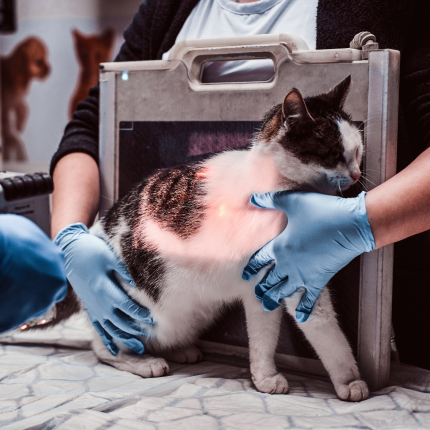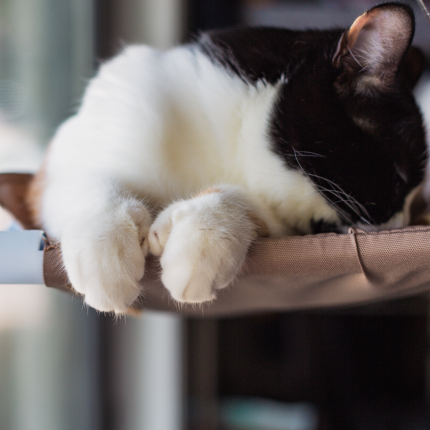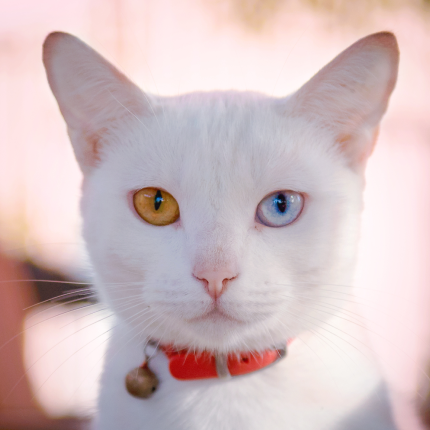What Are Signs My Cat May Have Cancer

Cancer is a scary diagnosis for a beloved cat. If caught in its early stages you can expect to have good treatment options, and your cat can go on to live a happy life for many years.
Knowing the signs of cancer in cats is vital. Science has made a lot of advancements when it comes to treating cancer in cats; it isn’t a guaranteed fatal outcome. There are very successful treatments available.
advertisement
Signs your cat may have cancer
- Swelling or lumps. You may find a new lump on your cat’s body or notice a swollen area on your cat, and neither seem to clear up on their own, or they are getting bigger and changing shape.
- Reoccurring digestive problems. Your cat may have reoccurring vomiting and/ or diarrhea.
- Changes in urine or feces output. You may notice a difference in how much your cat has been going to the bathroom. It may be a dramatic increase or a very noticeable decrease in output.
- Weight loss. Even if your cat’s appetite hasn’t changed, you notice a significant change in their weight.
- Difficulty swallowing or eating. You may notice that your cat is no longer interested in their food, or they are choking a lot while they are eating.
- Trouble breathing or a persistent cough. A continuous, dry cough could signify a much bigger problem for your cat.
- Bad breath. This sign could indicate a couple of problems, and cancer is one.
- Swollen lymph nodes. The lymph nodes behind your cats’ knees and under their jaws are easy to find and might be the ones you notice swelling in.
- Change in temperament. If your friendly, loving cat is suddenly very grumpy and doesn’t want to be touched, it may be a sign that it is in pain.
- If your cat seems to be more tired than usual or has a hard time getting up, that might be a sign of cancer.
- Cats are known to hide when they are not feeling well. It is a survival instinct to hide away, so they are not easy prey to predators.
- Sores that don’t heal. You may notice your cat has a sore, and if it takes a long time to heal or does not heal at all, it might be a sign that something else is going on.
- Unexplained bleeding. If your cat’s gums, nose, mouth, or private areas start to bleed with a cause, it might mean that your kitty has cancer.
Common types of cancers cats get
Soft-tissue Sarcoma
This cancer forms in the connective tissue and will form malignant tumours.
Lymphoma
A blood cancer and the most common cancer in cats. It is commonly known to affect the lymph nodes, intestines, kidneys, and liver.
Squamous cell carcinoma
A skin cancer that affects areas of a cat that don’t have any hair like the eyelids, nose, and ears.
Cancer treatment for cats
You will need to have the vet do a physical exam to get a diagnosis for your cat. Depending on the cancer and where it is located, they may also want to do blood work, X-rays, ultrasounds, or even an MRI.
The treatment your cat will receive depends on several factors, including:
- Location of tumour
- Stage of cancer
- Type of cancer
- Your cat’s tolerance for the care it will be receiving
- Financial limitations
Common options for treatment are
- Chemotherapy
Much like in humans, chemotherapy is the administration of a medication in hopes that it will kill the cancer cells. Chemotherapy drugs are made to attack rapidly dividing cells, but they do sometimes also attack healthy cells.
Common side effects include:
- Nausea and vomiting
- Diarrhea
- Bone marrow suppression
- Organ damage
You will need to be extra precautious when cleaning your cat’s litter boxes to ensure you do not come in contact with any of the drugs that may be in their excrements.
- Radiation
Typically, the cat would be put under a general anesthesia to ensure they do not move during the radiation treatment. A strong radiation beam is shot into the tumour and will kill the cancer cells. Unfortunately, the radiation can damage healthy cells that it may come in contact with, as well as cause skin irritation and hair loss.
Radiation is often a one-time treatment, but depending on the cancer, your cat may need several treatments. The process isn’t painful, and you don’t need to take any precautions after to protect yourself from radiation.
- Surgery
This is usually the option for tumours, and for the most part, this is a cure for the cancer. Some tumours can’t be removed entirely but can have a portion removed which can help to improve your cat’s quality of life by offering some much-needed relief.
- Hospice care
This is the option for cats whose cancers are too far advanced, or the cat won’t handle the treatment well, or if you decide that the treatment options are not something you want to put your cat through.
The veterinarian will treat the symptoms of cancer and keep your kitty comfortable so its remaining days can be as pleasant as possible.
Sometimes the treatment side effects don’t seem worth the treatment, especially if your cat is already older and on the frail side. You may decide it’s best to keep your cat comfortable and let nature run its course.
advertisement
Conclusion
There are several symptoms that you may notice if your cat is suffering from cancer. If you suspect this, it is a good time to book an appointment with the veterinarian. A lot of cancers, if caught early, are treatable, and your kitty can go on to live a happy and long life afterwards.
The critical part is catching it as soon as possible and then deciding what treatment options are best for your cat and its quality of life.

Featured Articles

Greebles and Cats: The Origin and the Meaning
You may have seen an internet sensation concerning cats labeled “greebles.” Feel out of the loop? We’re here to help you. In 2019, Reddit user /user/literallyatree commented on a Reddit post about a cat that looks like it’s trying to slap a ghost. This user commented: “My family calls things…

Polydactyl Cats: Just More Beans to Love
Polydactyl cats have become extremely popular in recent times. As a result, more and more people are interested in learning more about this six-toed cat and want to get one of their own. If you are a cat lover intrigued by polydactyl cats, you have come to the right place….

The Odd-Eyed Cat (AKA Heterochromia)
Cats are already beautiful and fascinating creatures, but people are bound to take notice when they have something as captivating as two different colored eyes. Odd-eyed cats always have one blue eye paired with either a green, yellow, or brown eye. This form of heterochromia occurs in other animals, including…
